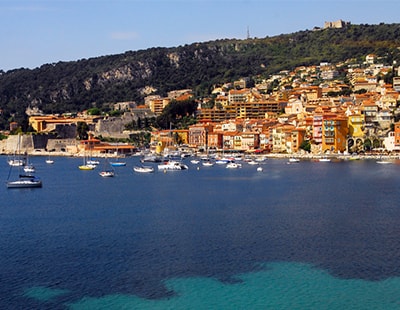The Riviera, The Var and Aries
According to the study, the Riviera is on the way up and prices are rising, with Cannes and Nice offering the best investment potential.
This is due to less restrictions in the number of days owners can rent out their property in Cannes, a wide range of events held throughout the year and a new tram linking Nice Airport to the city – all of which help guarantee a strong rental return all year around.
The Var is also rising in popularity, with Cotignac and Fayence – where houses average around €2,600m2 – the hottest locations. Buyers here can get more for their money and benefit from a laid-back lifestyle in places that are lively all year round.
Up-and-coming town Aries is particularly attractive for those looking for long-term investment opportunities. Prices increased by 4% over the last year and are expected to keep rising thanks to several planned developments.
The town’s strong links with history and art guarantee buyers a strong rental return, and it was voted one of the best places to visit in 2019 by Conde Nast Traveller Magazine.
The southwest and Paris
The popularity of southwestern France hasn’t waned, especially in rural areas such as Dordogne, Lot-et-Garonne and Gers. Prices have remained stable and buyers find they can get more for their money, leading Home Hunts to expect sales to increase in the second half of 2019.
The area is ideal for those wanting to relocate permanently, offering a wide choice of lifestyles, as well as easy access to Toulouse and Bordeaux (where prices rose by 7.8% in the past year).
Paris is also seeing a boom and has benefited from Brexit, with many buyers from outside the EU now choosing it over London.
Property prices have increased by around 5% in Paris and Île-de-France, with four locations constantly the most sought-after: the Golden Triangle in the 8th and 16th arrondissement; the Left Bank in the 6th and 7th arrondissements; the 18th and 17th arrondissements near Monceau Park; and Le Marais in the 4th arrondissement, where demand for haussmannian-type building apartments is particularly high.
The French property market remained stable despite Brexit
Home Hunts found that despite the reduction in the number of UK investors, buyers from other parts of the world filled the gap.
“We had more interest from mainland Europe and beyond – such as China, the US and the Middle East,” said Tim Swannie, director and co-founder of Home Hunts.
In fact, the April 2019 review from Notaires de France reported that the number of properties sold in 2018 was 970,000, practically the same as the year before (968,000.)
Swannie added: “It is looking as though the market will continue to offer stability and reliable returns to investors in 2019.”
He said that, interestingly, an increasing number of Brits are looking to make a permanent relocation across the Channel. “We’ve had many couples and families trying to create a new life in France before the potential restrictions of Brexit put obstacles in their path. It is now about 75% buying holiday homes and a quarter looking to be relocated, whereas pre-Brexit this was around 85/15.”
Low-interest mortgages mean it is a good time to invest in the French property market
The French property market is continuing to offer stability and reliable returns to investors. Swannie said that as interest rates in France are low and competitive, many British buyers look to take a mortgage rather than spend all of their sterling.
“That way they will be able to pay of their mortgage if the exchange rate strengthens in the future,” he explained.








.jpeg)
.png)

.jpg)








Join the conversation
Be the first to comment (please use the comment box below)
Please login to comment